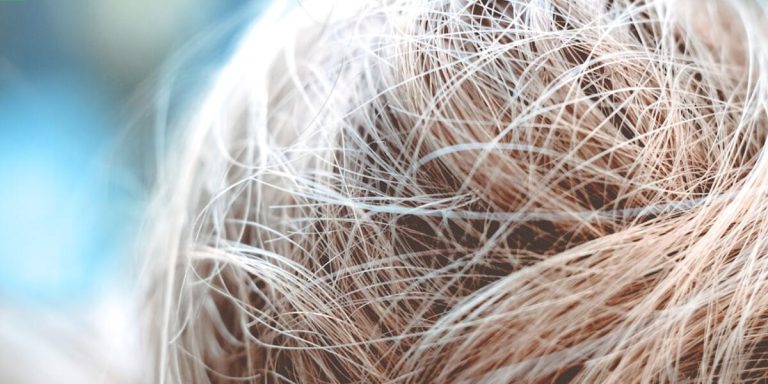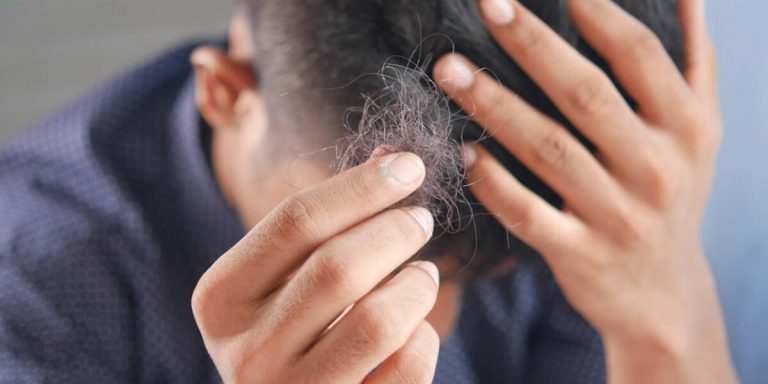Does Vaping Cause Hair Loss? Debunking the Controversial Connection
As the popularity of vaping continues to rise, so do concerns about its potential side effects. One such alarming query on many minds is: “does vaping cause hair loss?” While this controversial connection may seem surprising at first glance, it’s not entirely unfounded when considering the myriad of health issues and lifestyle factors that contribute to hair shedding.
In seeking answers for this intriguing question, we will explore in-depth scientific evidence from credible sources. This post aims not only to demystify whether there’s a direct linkage between habitual e-cigarette usage and premature balding but also delve into circumstantial causes surrounding both phenomena. Together let’s unravel the strands of truth behind this contentious matter.
Did you know?
Interestingly, a study from Harvard University revealed that e-cigarettes could damage DNA and increase the risk of cancer and heart diseases. This implies vaping might indirectly contribute to hair loss through increased stress on your body’s health systems.
Understanding the Connection Between Vaping and Hair Loss
As we dive into the world of hair health, an interesting question emerges. Does vaping cause hair loss? Over recent years, as electronic cigarettes penetrated deeper into our lives due to their perceived safety compared to traditional tobacco smoking, this issue has generated some debate.
Cigarette smoke, with its toxic chemical contents, can significantly deteriorate overall health and may harm your scalp and follicles, leading to hair thinning or baldness. Determining whether vaping nicotine poses the same risks is complex. Although studies continue to investigate this issue, one thing remains clear: inhaling any foreign substance could negatively affect your body over time, despite initial perceptions of safety.
Scientists suggest that two main elements in e-cigarettes, propylene glycol (PG) and vegetable glycerin (VG), might link vaping to hair loss. These substances can cause dry skin issues like eczema when applied topically, potentially affecting the scalp in similar ways by leading to dehydration, premature shedding, or poor growth cycles.
However, as of 2023, no conclusive evidence directly links these factors to an increased rate of alopecia.
Examining Scientific Evidence on Nicotine and Follicle Damage
As a lifestyle choice that has become more prevalent in the past decade, vaping is garnering attention for its potential impact on various aspects of health. One area raising questions is whether or not vaping can lead to hair loss.
The main active ingredient in most e-cigarettes and vapes available today – nicotine, underpins the connection between vaping and hair damage. Nicotine acts as a vasoconstrictor which narrows blood vessels and reduces blood flow to your follicles — where your strands grow from.
Review three significant points when examining the scientific evidence on whether vaping causes hair loss:
1.) **Limited Blood Flow:** As mentioned earlier, nicotine contained within vape products constricts the tiny capillaries carrying essential nutrients required for healthy growth of hairs; this leads to limited oxygen supply causing impaired follicle function ultimately leading towards weak roots giving rise to increased fallout.
Exploring the Role of Vape Chemicals in Scalp Health
The question ‘does vaping cause hair loss’ has gained significant importance in recent years. As we delve into the subject, it becomes crucial to examine how vape chemicals impact scalp health and, ultimately, your hair’s well-being.
Research links several harmful substances found in vapes or e-cigarettes with potential damage to our overall health. Nicotine is one such element that plays a pivotal role here. This powerful stimulant constricts blood vessels which can limit necessary nutrients and oxygen reaching the roots of your hair due to lessened blood circulation.
Moreover, formaldehyde – another component used during the process of heating liquid nicotine – emerges as a concern for those who vape regularly. Known for its toxic properties when ingested or absorbed through skin contact; extended exposure may traumatize cells leading them towards death cycle rather than growth phase optimum for strong strands’ generation.
Not only this but propylene glycol also tends users towards distressing experiences related to scalp dryness causing brittle strands consequently resulting in their breakage and severe alopecia if not handled timely.
As you consume these damaging components constantly while engaging yourself into daily sessions of vaping- are you ready face bald patches appearing on head? It’s high time indeed understand depth behind what appears social trend turning nightmare overnight!
Lifestyle Factors: How Vaping Fits into Broader Hair Loss Causes
Lifestyle-related factors play a significant role in hair loss, and one practice that’s been under the microscope recently is vaping. In our up-to-date lifestyle where “vape culture” has gained ground among millions worldwide, there’s been an increasing concern about whether or not this habit could contribute to alopecia. Indeed, as we’re continually uncovering more about the potential health impacts of vaping, it’s essential to understand its possible effects on your precious locks.
The scientific community has long confirmed how toxins from cigarettes lead to premature aging and damage overall body health – including leading to hair thinning due to poor scalp circulation. Now attention is being turned towards e-cigarettes or vapes; while they are often touted as safer alternatives with fewer chemicals than traditional tobacco products, their impact on health still remains largely understudied.
As things stand now in 2023, preliminary research suggests that certain ingredients found in vape juices like nicotine might be contributing agents for receding tresses too. Nicotine constricts blood vessels which can affect vital nutrient flow needed for healthy follicle growth – thus potentially triggering increased shedding amongst regular vape users.
In closing out these speculations ‘does vaping cause hair loss?’ The answer isn’t clear-cut yet but bearing caution wouldn’t hurt until further insights come into light.
Assessing the Impact of Inhalants on Nutritional Deficiencies
Vaping, a contemporary trend mostly among younger demographics, seems harmless at first glance. Yet one may find themselves wondering: “Does vaping cause hair loss?” The truth is that it can indirectly contribute to this issue through various means.
To understand how everything ties together, we must firstly address the impact of inhalants on nutritional deficiencies—an aspect scarcely discussed yet crucial in maintaining healthy hair growth. Inhaling substances like nicotine found in vapes can potentially disrupt your body’s normal functioning and nutrient absorption process.
Nicotine exists as a stimulant which increases heart rate while constricting blood vessels upon consumption—that includes those responsible for delivering essential vitamins and minerals towards your follicles. Such constriction compromises the entire distribution system of nutrients necessary for optimal health and durability of your scalp’s hairs.
Habitual vaping often shifts an individual’s focus away from a balanced diet because nicotine suppresses appetite. This compounds the nutritional issues already present from circulatory limitations. As a result:
- The individual faces significant gaps in dietary nourishment.
- Maintaining or regenerating robust hair strands becomes difficult or impossible.
- Hair may become prone to easy breakage.
- Untreated, this could lead to eventual baldness over time.
Interplay Between Stress, Vaping, and Alopecia
Understanding the multifaceted relationship between stress, vaping, and hair loss known as alopecia is key to grasping how lifestyle choices can influence our wellbeing. A common question that arises is – does vaping cause hair loss? Let’s delve into this issue.
Firstly, we need to establish a connection between stress and hair loss. It’s no secret that prolonged periods of high-stress levels send alarm signals throughout your body which may trigger certain health conditions including Alopecia Areata (AA). Studies have shown AA occurs when white blood cells attack the cells in your follicles causing them to shrink drastically leading to severe or partial baldness.
Vaping has been marketed as safer than traditional tobacco smoking but more recent studies are uncovering potential harmful effects it might pose on individuals who vape regularly. One such effect being questioned by many users lately: Does vaping cause hair loss?
Although research directly linking e-cigarette use (vaping) with baldness isn’t extensive yet due its relatively new entry in our lifestyles compared to other factors like genetics or diet deficiencies for example- some correlated side effects could potentially contribute towards thinning out of one’s mane indirectly.
Comparing Traditional Smoking and Vaping: Effects on Hair Health
In the modern era of health-conscious individuals, understanding the impact of our choices is paramount. One such choice that has been under scrutiny lately is vaping and its potential effects on hair health. Specifically, there’s a growing concern about whether vaping could lead to hair loss.
As compared to traditional smoking, vaping might seem like a safer alternative due to lesser toxic substances being inhaled into your system. However, it’s important not to overlook or underestimate its possible side-effects just yet – especially when it comes down to your precious locks’ vitality.
Considering nicotine as the common culprit between these two practices unveils significant insights regarding this issue at hand. Nicotine can cause constriction of blood vessels which may lead directly towards inadequate scalp nourishment; thus leading inadvertently toward faster hair thinning and eventual loss over time.
While more research needs to be conducted concerning e-cigarettes specifically’, preliminary findings indicate that consuming nicotine—regardless if from smoke or vapor—can potentially harm follicular functions similarly due their shared ingredient: Nicotine itself!
Even though vapes may seem less harmful than regular cigarettes because they don’t emit odorous fumes and toxins, they still negatively affect overall physiological wellness beneath the surface. They can cause untimely baldness among users unless you take prompt and progressive steps against them from early stages.
Investigating Tobacco Smoke Versus Vaporized Solutions on Hair Growth
Vaping has stormed the world as an alternative to traditional smoking, promising lesser harm and a more modern approach. This leads us to question – “Does vaping cause hair loss?” Let’s delve into this comparison between tobacco smoke vs vaporized solutions on hair growth.
Tobacco is known for its adverse effects on overall health, including hair health. Traditional smoking introduces harmful substances like nicotine and tar directly into your bloodstream affecting circulation in many parts of your body including scalp which subsequently affects healthy hair growth cycle. Extreme cases might even lead to premature graying or balding.
On the contrary, vaping offers a ‘smokeless’ experience with e-liquids heated up by electronic devices creating inhalable steam that mimics the sensation of real cigarette smoke but does it have similar impacts? The answer isn’t black-and-white because while fewer toxins are released during vaping compared to burning cigarettes; some potential harms can’t be overlooked completely either.
One main culprit behind thinning or falling out tresses could potentially be propylene glycol (PG), commonly used in e-liquid bases alongside vegetable glycerin(VG). PG is hygroscopic meaning it attracts water molecules from surroundings causing dryness over time upon frequent exposure – not just for mouth and throat but possibly you guessed it – your lush locks too if vaped around excessively without necessary precautions typically leading them brittle before actual fallouts begin inevitably!
Analyzing Toxin Exposure from Cigarettes Compared to E-Cigarettes
In contrast with regular combustible cigarettes, e-cigarettes are often marketed as a less-harmful alternative. However, it’s crucial not to mistake ‘less harmful’ for safe.
For starters, both cigarette smoke and vape aerosol contain nicotine – stated bluntly, they’re both addictive! The presence of nicotine reduces blood flow throughout our body; including those tiny capillaries that feed your scalp’s follicles. Prolonged reduced circulation could lead straight into premature hair thinning or even excessive shedding.
Next up: Notorious free-radicals! Regular tobacco includes tar that releases a ton of these unstable atoms when combusted which can attack cell structures leading to weaker strands and aggravated rates of fallout. While vapes don’t burn tar per se’, studies have found metallic substances within numerous e-cigarette brands capable of eliciting similar detrimental effects upon vaporization.
Here comes another unpalatable fact about conventional smokes – their emission contains over 4000 chemicals apart from Nicotine (yikes!). About 250 among them pose harm while some are outright carcinogenic (major yikes!).
Conclusion
So, does vaping cause hair loss? While concrete scientific evidence is still forthcoming, current research trends suggest that it might indeed act as a contributor. However, keep in mind that several factors come into play when we talk about hair loss and vaping alone should not be singled out as the sole culprit.
For those of you who are grappling with this issue or know someone who is struggling to shed their smoker’s habit for healthier alternatives – knowledge is power! We encourage each one of our readers to delve deeper into understanding ‘Hair Loss Causes’. Navigate through other articles on our website which offer an enlightening perspective on various triggers behind thinning tresses.
Don’t let your locks lose their luster without a fight!







